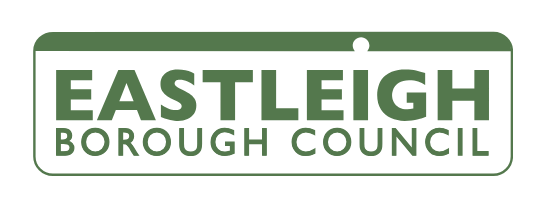Evolution or Revolution
Council Tax has been a fixture since its introduction in the early 1990s. Often described as a property tax, it is more accurately considered a property and household tax. As the socio-economic landscape evolves and public dissatisfaction with the current system grows, the question arises: should the future of Council Tax be shaped by gradual evolution or radical revolution? This was a hot topic at the IRRV Spring Conference. Here is my take on it.
Context and Current Structure
Council Tax replaced the unpopular Community Charge (or “Poll Tax”), aiming to create a fairer system based on property values rather than a flat rate per person. With properties set into bands authorities set their own rates within a framework determined by central government, allowing for some regional variability. Despite its intent, Council Tax has faced criticism over issues of fairness and adequacy. The valuation bands, based on 1991 property prices, are outdated, leading to disparities as property values have shifted significantly over the past three decades. Additionally, the system’s regressive nature can lead to lower-income households often paying a higher proportion of their income compared to wealthier households.
The Case for Evolution
Evolutionary changes to Council Tax could address many of its current shortcomings without the disruption of a complete overhaul. Possible reforms voiced include:
- Revaluation of Properties – Regular updates to property valuations which could ensure that tax bands reflect current market values, addressing disparities and ensuring a fairer distribution of tax burdens
- Band Expansion and Redistribution – Introducing more bands, especially at the higher end, could create a more progressive system. This would ensure that those with the most expensive properties contribute a fairer share relative to their property wealth
- Enhanced Local Autonomy – Allowing local authorities greater flexibility in setting rates and introducing local supplements for specific projects could enhance the responsiveness of Council Tax to local needs
- Targeted Reliefs and Rebates – Expanding means-tested rebates and introducing reliefs for low-income households can mitigate the regressive impacts of Council Tax. If not funded effectively though this will place additional strain on already stretched local budgets
- Integration with Other Local Taxes – Streamlining Council Tax with business rates and other local levies could improve efficiency and reduce administrative costs
Evolutionary changes to Council Tax could address many of its current shortcomings without the disruption of a complete overhaul with the changes offering the benefit of incremental improvement, ensuring stability while addressing disparities and promoting fairness in tax distribution.
The Case for Revolution
While evolutionary changes offer incremental improvements, some continue to argue that only a revolutionary approach can address the fundamental flaws that exist with the current Council Tax scheme. Proposals for a revolutionary transformation include:
- A Land Value Tax (LVT) – Replacing Council Tax with a tax based on land value rather than property value could promote fairness and efficiency. A LVT taxes the unimproved value of land, encouraging better land use and reducing speculative holding
- Local Income Tax – Shifting to a local income tax could align tax burdens more closely with the taxpayer’s ability to pay. This approach would be more progressive, ensuring that higher earners contribute proportionately more
- A Combined Property and Income Tax – A hybrid system could balance the benefits of property taxation with the fairness of income taxation, ensuring that both wealth and ability to pay are considered
- Reform of Funding Mechanisms – Beyond changing the tax itself, revolution could involve restructuring how local services are funded. This might include greater central government funding or new models of municipal finance such as local bonds or participatory budgeting. For instance, many advocate that social care should be funded from a central pool
While evolutionary changes offer gradual progress, some argue that only revolutionary reforms can effectively address the fundamental flaws of Council Tax. Proposals such as implementing a LVT, shifting to a local income tax, or combining property and income taxes offer clear benefits, promoting fairness and alignment with taxpayers’ ability to pay. Ultimately, these radical reforms aim to create a more equitable and sustainable taxation system.
Political and Social Considerations
The choice between evolution and revolution involves not only technical and economic considerations but also political and social ones.
Evolutionary changes are often more politically palatable, as they promise improvements without the uncertainty and resistance associated with sweeping reforms. However, revolutionary changes, though riskier, offer the potential for a more equitable and sustainable system in the long run.
In my opinion the public doesn’t necessarily care about the taxation mechanisms as long as they can understand it and ultimately pay less in the long run, preferably with fewer significant increases. There is a growing consensus, especially amongst practitioners, that something needs to be done about extreme wealth and its impact on the fairness of taxation systems.
With a General Election now scheduled for July and a possible change in power, a revolutionary approach is unlikely to occur in the first term of a new government. Such significant changes might be reserved for the start of a change in government’s second term.
Conclusion
The future of Council Tax is at a crossroads, with both evolutionary and revolutionary paths offering distinct advantages. While evolutionary reforms promise incremental improvements and stability, a revolutionary approach could address deeper structural issues and create a fairer, more efficient system. Any change that has a significant impact, however, will need to be phased in to ensure taxpayers have the consistency required to manage their personal finances effectively.
Ultimately, the choice will depend on balancing the desire for equity and efficiency with political feasibility and public acceptance. As we move forward, the debate between evolution and revolution will continue to shape the landscape of local taxation and public finance.
About Steven Rybaruk
Steve joined Liberata in 2003 and has over 25 years of experience in the Revenues & Assessment field in both the public and private sectors. He is a key member of the Senior Management Team, leading the Revenues & Assessments Solutions & Innovation functions. Steve is responsible for the Future Operating Model, service strategy, and benchmarking program, ensuring cost-effective and high-value solutions for local government clients.
steven.rybaruk@liberata.com





